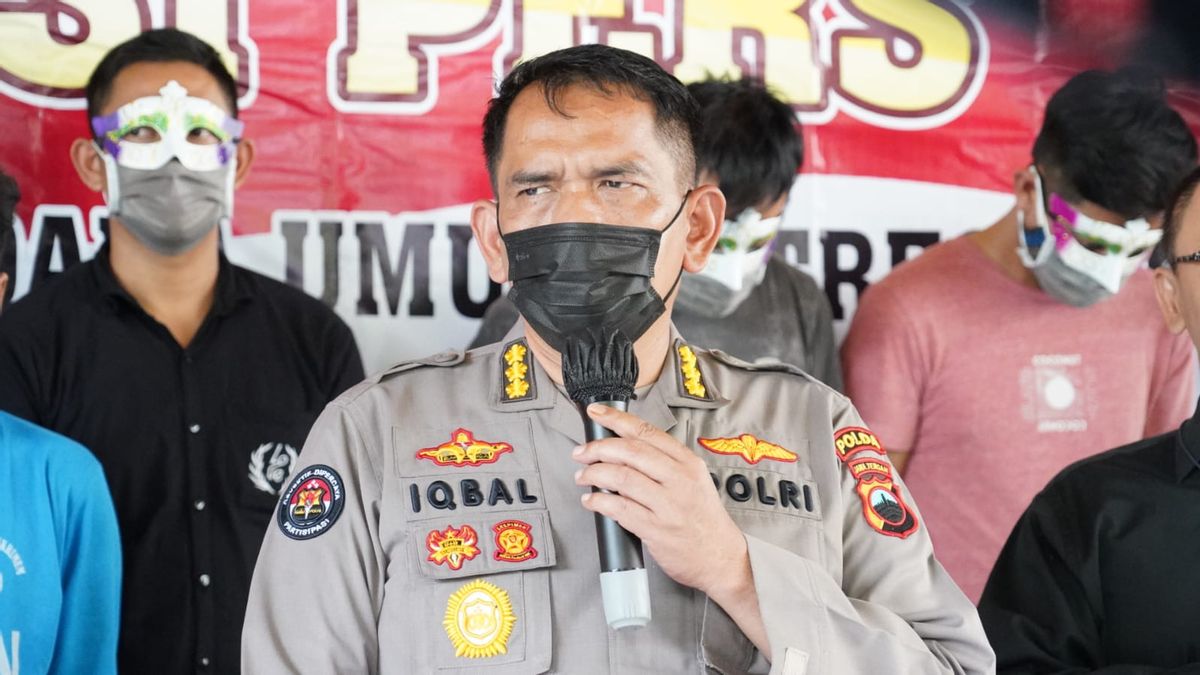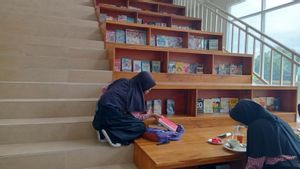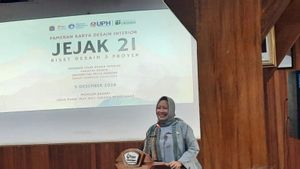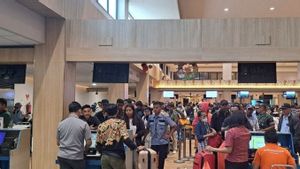SEMARANG - Towards the end of the month of Ramadan, people's economic activities began to squirm. Residents began to do a lot of activities out of the house and shopping for Lebaran needs.
Seeing this phenomenon, the Central Java Police reminded the public to be careful because the potential for vulnerability to Kamtibmas has also increased.
As an anticipatory measure, patrols are carried out in a number of strategic locations such as mass concentration areas, banks, ATM platforms and shopping centers.
The Central Java Police Chief through the Head of Humas Kombes Pol M Iqbal Alqudusy asked the public to be careful of several criminal acts that usually occur when people spend money or travel before Eid.
"Snatching and pickpocketing are very prone to occur at times like this. Therefore, I ask the public to be wise and careful," said Iqbal through a short message received by the editor, Tuesday, April 19, evening.
For this reason, he asked the public not to carry large amounts of cash and not to wear conspicuous jewelry.
"Wearing conspicuous and excessive jewelry and carrying large amounts of cash has the potential to invite criminals to carry out their actions. In addition, residents should not use cell phones carelessly. Once finished, put the cellphone in a jacket pocket or in a place that is considered safe, " he said.
Iqbal added, based on experience, women are more likely to be targeted by robberies. Meanwhile, pickpockets do not target certain groups but prefer potential victims, namely people who are in the middle of a crowd so that the perpetrators' actions can be disguised.
Regarding pickpockets and snatching or looting, Iqbal conveyed some safe tips so that the public can avoid the two crimes above.
Referring to several references, safe tips to avoid pickpockets or snatches include:
1. Start the activity by praying so that God will provide smoothness and safety during activities.
2. Try not to work alone. Try to invite family or colleagues so that someone can participate in supervising the activities carried out.
3. Always be aware of the surrounding environment. Be observant and alert to the movements of those around you. Stay calm and don't be over reactive.
4. Keep your distance from new people.
5. Beware of the wallet, do not let it stick out when stored. Try not to keep all the money in your wallet.
6. Use a bag that looks not luxurious and closed. Robbers and pickpockets often target bags that look luxurious and flashy. Use bags with closures such as zippers or buttons so they are not easy to open.
7. Try to always carry the bag in front of the body, and hug the bag if you have to pass through a crowd of people. It's a good idea not to just put your wallet or cellphone in your bag, but tuck it in a folder, or a larger pocket before putting it in your bag.
8. Try not to keep all valuables in one place. Keep valuables such as money and cell phones in separate places, for example, cell phones are stored in a jacket pocket while money is in a wallet or shirt pocket.
9. Avoid dark and lonely places. If there are signs of being followed by people, then immediately go to a crowded place.
10. Do not play with mobile phones when on the roadside or in quiet locations, because it provokes criminals to launch their actions.
11. If you become a victim of a crime, immediately shout for help, honk the horn or take other actions to attract the attention of those around you. It is natural to fight against the perpetrators, but you must prioritize your own safety.
12. Avoid vigilantism and immediately report the incident to the nearest security or police officer.
Some of the tips above, still said Iqbal, are recommended for use by the community when doing shopping activities or other activities outside the home.
"But there are other things that are no less important. We urge the public to remain vigilant about the spread of COVID-19 and obey health protocols. We also urge the public to use money wisely and not to overdo it in shopping," he concluded.
The English, Chinese, Japanese, Arabic, and French versions are automatically generated by the AI. So there may still be inaccuracies in translating, please always see Indonesian as our main language. (system supported by DigitalSiber.id)













